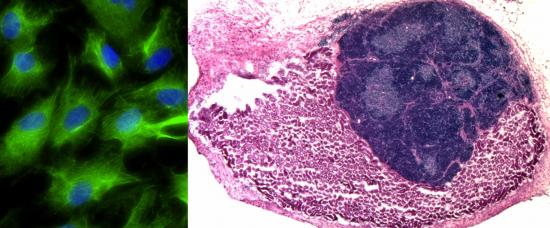
The University of Edinburgh, founded in 1583, is the sixth-oldest university in the English-speaking world and one of Scotland’s ancient universities.
The Latest Bing News on:
University of Edinburgh Research
- UCL Joins Groundbreaking Sustainable Research Agreement
The Concordat for Environmental Sustainability, developed by the UK research and innovation sector, is a pledge to embed sustainability into an organisation’s approach to research.It covers six key ar ...
- Paleontologists Discover Massive Dinosaur Tracks in China, Hinting at One of the Largest Known Raptors
The footprints, left behind by a 16-foot-long creature some 96 million years ago, represent the biggest raptor tracks ever found ...
- University seeks applications from AI innovators for programme
The University of Edinburgh’s AI Accelerator programme has announced it is now seeking innovative, technology-driven scale-ups to be part of its eighth cohort.
- Edinburgh's Heriot-Watt hails 'pivotal milestone' after joining forces to combat climate change
We look forward to nurturing the next generation of leaders who will drive positive change in our interconnected world.” ...
- US Funds Risky Bird Flu Research, Creating Lethal Strains of Virus with China: Concerns Rise Over Pandemic Origins
The US government allocates $1 million for bird flu research, partnering with Chinese scientists to study transmissibility and potential risks to humans. Despite earlier restrictions, funding began in ...
The Latest Bing News on:
University of Edinburgh Discovery
- Paleontologists Discover Massive Dinosaur Tracks in China, Hinting at One of the Largest Known Raptors
The 1993 blockbuster film Jurassic Park transformed the public’s perception of dinosaurs, propelling the velociraptor to the forefront of terror. But while the real-life velociraptor was indeed a ...
- How do we unlock the potential of digital health?
Dr Ricardo Sainz-Fuertes is global director of digital health solutions at Eisai, Co. He is a psychiatrist, neuroscientist, and pharmaceutical physician with a special interest in digital biomarkers ...
- The experimental demonstration of a verifiable blind quantum computing protocol
Quantum computers, systems that process and store information leveraging quantum mechanical phenomena, could eventually outperform classical computers on numerous tasks. Among other things, these ...
- Peter Higgs, who proposed existence of “God particle,” dead at 94
Edinburgh University Vice Chancellor Peter Mathieson said Higgs ... Gianotti recalled how Higgs often bristled at the term "God particle" for his discovery: "I don't think he liked this kind of ...
- Peter Higgs, Nobel Prize-winning physicist who discovered Higgs boson, dies at 94, University of Edinburgh announces
Edinburgh University said in a statement on Tuesday ... “We were honoured to celebrate his discovery of the Higgs boson through the Collider exhibition at the Science Museum and his work ...






